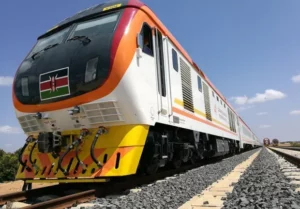So now you are ready for your first solo trip and looking for travel tips!. You are in the right place.
There are two different ways of traveling to any destination: a planned trip or an adventure trip.
Some travelers plan ahead of time where they are going, why they are going and places they want to visit. The rough adventure junkies just pick a destination and go with whatever comes.
When I started traveling, I could plan for weeks and days in advance only to find I wasted so much time. Planning is important, but it should not take much of your time since most of the time, the plan doesn’t work.
This is what happens: You plan to stay in a hotel, you end up in a hostel, you plan to use a bus, you end up hitchhiking, you plan to travel for a week, you end up backpacking for a month.
If you are intending to go out for your first solo travel, whether in Africa or abroad, here are tips that can help you get the best out of the trip. Pick the ones that work for you and go. You will figure the rest and learn on the road.
Travel Requirements
Travel Documents
Before you travel, get all the required documents for every destination. The minimums are a Passport, Yellow Fever card, and Visa.
Gone are the days when you had to visit embassies and high commision offices for Visas. It’s now easy to obtain a Visa for almost any destination from the comfort of your home, office or on the go. This is made possibe by the electronic visa systems – operated by government departments or third parties. If you plan to travel to the following destinations, check out their eVisa platforms.
- eVisa Vietnam
- eVisa Kenya
- Tanzania Online Visa
- KAZA Univisa for Zimbabwe and Zambia
Get the necessary vaccines, and if a visa is required, get it in advance or plan on how to have it on arrival.
Take photocopies of these documents with you and also send copies of the same to your email. If you lose your luggage and documents abroad, this can save you a lot.
Country news & Local traditions
The last thing you want is to land in a country and realize there has been a civil war in the last couple of weeks or a disease outbreak. Keep track of what is happening in the destination you are traveling to. Learn about their food, traditions, language, culture, and beliefs.
Planning
Budget
Create a budget for your trip. You can research the destinations you want to visit in advance. Most of your expenses will be on travel, accommodation, and food.
It is highly recommended that you have your money in either USD or in a debit card. The US Dollar is universal in most places, so you will not have trouble converting to local currency.
As personal advice, get yourself a debit card that you can load with a desired amount of money. This way, you will not overspend what is in your bank account and reduce the chances of losing all your money in case of card theft.
Transport
If you are flying, booking a few weeks or months in advance for the best deals is always best. Travel booking websites like Kayak, Jumia travel, Booking.com and Momodo have very good rates.
For buses and trains, you can make the booking a few days before you travel or on the day of travel. The best advice is to call the Train operator or Bus Company in advance to check on the timetable and the fare charges.
Accommodation
Search the internet for the best accommodation options for the places you will visit. You can as well ask for recommendations in online travel forums like Booking.com, Trip Advisor, Facebook groups, Lonely Planet or from your friends. Once you have identified possible hotels, hostels, Couchsurfing hosts, Airbnb rooms or campsites, call them to make reservations and ask to pay on arrival. This will help you in case you have travel delays.
Things to do and places to visit
While it is not always necessary, it is good to know where you wish to visit a particular destination. Learning a few words and phrases of the main language used in the destination is also advisable.
Route & Guide maps
Route knowledge is very important. As much as you are a wanderer, you don’t want to end up in Mwanza when your desired destination is Mbeya from Dar es Salaam. A good sort out route plan will make things easier for you. If you carry a smartphone, ensure you have offline maps and directions. For the rough adventurers, a good guide map will be hardy too.
Packing tips
Backpack
Choose a good quality, comfortable, and durable backpack from the beginning. It should also be light to ensure you don’t carry unnecessary weight. I personally use a 42L Deuter Futura Pro for short trips and 65L High Sierra for longer trips.
Clothes
My rule of thumb is to pack half the clothes I need for a trip. After all, it is an adventure. Pack as minimal clothes as possible. If you need any along the road, you can get them at a low price.
You can also wash the ones you have in the hostels, Airbnb’s or public laundries as you go.
Tent & Sleeping Mat
For most of the trips outside the country, you may not need a tent, sleeping mat or even a sleeping bag. On my part, I always carry a sleeping bag and sleeping mat just in case I end up on a train with no beddings or at a campsite.
Don’t forget to take a comfortable and relaxing pillow because traveling often leaves your back and neck aching.
Other essentials
Pack all other travel essentials but if they are adding a lot of weight to your backpack just leave them behind. I always carry a book, a diary, a pen, playing cards and a few electronics (Camera, Power bank and phone) with me.
On Journey and Destination tips
Adventure and Experiences
The main reason why you went out for the trip is to have an adventure and fun. So have it.
Take photos of the places you have visited and a few of yourself. You may not travel there ever again.
If you are a party person, have fun but drink responsibly. It is better to go exploring than nurse a hangover the whole day. Avoid walking at night drunk in places you don’t know.
Eat where the locals eat and avoid getting into a tourist’s trap.
I avoid taxis unless very necessary. Most of the time I hitchhike or use public transport buses and commuter trains.
Once in a while, stay in a half-decent lodge or hotel. And while you are there, remember to stock up some free coffee and sugar sachets!
Negotiate when buying things. Whether it’s in a souvenir shop or in a market, you will be amazed by how much you can save.
Currency
It is always best to exchange money at the border points on a road trip or in the city center bureaus if you are flying. The rates are great, but you should be careful about the cons. If you have a travel debit card the better.
Friends
If you stay in hostels, you will make so many friends. Also, the locals make a good company as they will be willing to show you around.
Safety tips
Always remember to take care of your belongings wherever you go. In trains and buses, not everyone is a passenger. I always use my backpack as a pillow while on trains, it is not very comfortable but at least my items are safe.
As much as you are on an adventure, you will meet many locals and even travelers who will pretend they want to help you. Always be mindful of whom you interact with and the places you visit with strangers. Not everyone has goodwill. If you look like an easy target they will steal from you. Remember, if the deal sounds very good, question it!
If you ever get confronted by robbers, don’t resist, give them what they want, especially if it is at night. Your life is more important.
If you are going to stay in a place for a while, buy a local Simcard and save one or two emergency contacts. Inform someone where you are. But if you stay in hostels with Wi-Fi, it’s easy to make internet calls. E.g. Using WhatsApp
Health tips
Take your medication with you if you have any. I always travel with a light first aid kit with the very basic essentials like bandage, alcohol pads and a few painkillers. Many travelers recommend things like a Swiss army knife, solar lanterns and things like the headlamp. Personally, I don’t see their use. I carried such for about three trips and never used them!
Always keep yourself hydrated. Water is very important because chances are you will be exploring almost the whole day. And remember to drink bottled water only!
Many people try to overlook travel insurance but it is very important. You may fall sick and require specialized treatment which costs a lot. Good insurance will take care of that if you have it.
Others essentials
Things to do if you run out money
At times things go wrong and you run out of money. It could be as a result of being conned, drinking to the last penny among other reasons. If this happens, don’t panic or start making distress calls to your family. There are a few things you could do to get some money as long as you are not choosy.
- Request to work in the hostel you are staying at. (Cleaning swimming pool, attending the bar, at the kitchen or admitting guests)
- If there is a remote job you are good at, request for a desktop at the hostel and get to the task. In return, you can volunteer.
- Depending on where you are, you can volunteer at local farms (WWOOF) and get paid.
- As a last resort, you can borrow money from the newly made friends at the hostels or on Couchsurfing.
Useful Resources
If you are planning to backpack in East of South Africa, Here are some good resources for you.
- Airbnb Link
- Nairobi to Victoria Falls by Road and Rail
- Apps and Tools for Backpackers
- Traveling by Bus in East Africa
- Budget Hotels and Hostels in Kenya
- Travel resources for backpackers in Kenya
- Backpacking in Ethiopia by Wangechi Gitahi
There is a lot of useful information and tips on the web about first-time backpackers and travelers. Do your research well in advance. Join online communities and forums with tips related to your desired destination.
The tips I have given are from a personal point of view. Any other useful information can be shared in the comment section below.
Safe travels and have fun!



